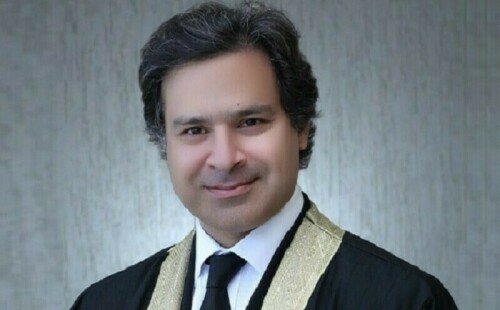ISLAMABAD, Dec 15: The Supreme Court on Friday stopped the NWFP government from enacting the Hasba bill. The court issued the stay order on a presidential reference — the second such referral in a year.
The provincial assembly had, on Nov 13, rushed through a revised version of the Hasba bill proposing the appointment of an ombudsman for enforcing ‘Islam’s morality code’. But NWFP Governor Ali Jan Aurakzai withheld assent, terming the bill unconstitutional, in a letter to the prime minister on Tuesday.
On Friday a five-member Supreme Court bench, headed by Chief Justice Iftikhar Muhammad Chaudhry, asked the Frontier government’s Chief Secretary, the advocate-general and the assembly’s speaker to appear before it during the third week of next month.
The court’s ruling came on a presidential reference filed on Thursday, requesting the Supreme Court to take up the matter ‘at the earliest’.
Attorney-General Makhdoom Ali Khan said the revised Hasba bill was unconstitutional on the same grounds as those given by the court last year. One of the grounds was that the bill was aimed at setting up a parallel judicial system. Makhdoom Ali Khan argued that the new bill also sought to create a parallel judicial system.
On Aug 4 last year, a nine-member Supreme Court bench had blocked the first version of the bill in response to a presidential reference by declaring as unconstitutional several of the bill’s clauses on the powers of the ombudsman. The court had also advised the governor not to sign the bill into law.
In its earlier judgment, the AG recalled, the court had declared unconstitutional the district Mohtasib’s office, envisaged in last year’s Hasba bill, as there was already a provision for such an office under the Local
Government Ordinance. But the revised bill incorporated the same provision, Mr Makhdoom said.
In his reference, the president urged the court to determine whether the Hasba bill respected or not the fundamental rights guaranteed by the constitution.
The reference also requested the court to determine whether the bill conformed to the principle of separation of powers. The presidency contended that the bill delegated too many powers of the executive and the legislature to the ombudsman.















































Dear visitor, the comments section is undergoing an overhaul and will return soon.